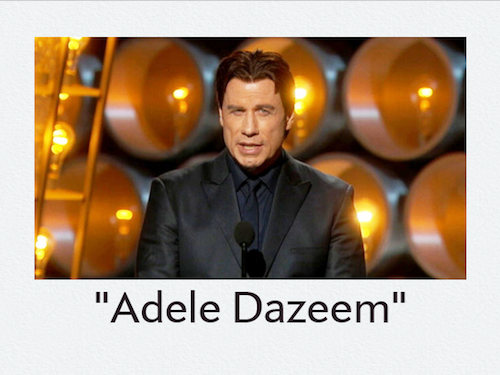Yesterday over at Slate, six-year editor David Plotz said goodbye. He’s being replaced by Julia Turner, who for all intents and purposes has a similar mindset. You can view Slate in a lot of different contextual ways, but it’s near and dear to my heart in some of those ways because I have a long-running e-mail thread with a group of guys I went to college with, and one (interestingly, probably the most fiscally stable) repeatedly sends links almost only from Slate. This is derided by others periodically as “liberal” or “slanted” or “not real journalism.” (My friends have dynamic opinions on things. Who would want this any other way?) So, whatever you think of them, that’s your own thing — but they do thought-provoking stuff now and again. Right now on their homepage, for example, there’s an article about whether Siberia is a safe place to store a sample of smallpox.
So go back to Plotz’s goodbye letter and note this one thing:
It’s an excellent time for Slate to have a new leader. We’ve grown massively in the past few years: We’re coming off the most successful year in Slate history, with record traffic and financial success, and a spectacular redesign. Our staff is the best it has ever been. In recent months, we’ve published everything from the Adele Dazeem Name Generator—the most widely read piece in Slate history—to Josh Levin’s unputdownable 18,000-word story about Ronald Reagan’s “Welfare Queen.” We launched our membership program Slate Plus. Mike Pesca started his sublime podcast The Gist. And Dear Prudence offered useful advice to a woman who wanted to pay her college tuition by working as a prostitute.
Did you catch that? The most widely read piece in the history of a digital magazine also doing stories on welfare queens and prostitution-ravaged college students is a “name generator” based off of this:
Put simply, the media game has changed. If you’re chasing clicks, which is one strategy you can obviously pursue, you do that in a different way than you chase the highly-intellectual reader (and there’s still an argument that you don’t chase that reader at all online). There are different models emerging around the future of journalism, but it is interesting to note this. Slate has 25 million unique visitors a year, give or take, and in between their multitude of podcasts and random, interesting things about baby names and the Supreme Court … what’s resonating most is a name generator off a 32-second moment in pop culture. Kinda sums up the Internet and consumption habits in one little anecdote, no?
I embedded Carlos Danger at the top, by the way, because they also did one of those name generators.
